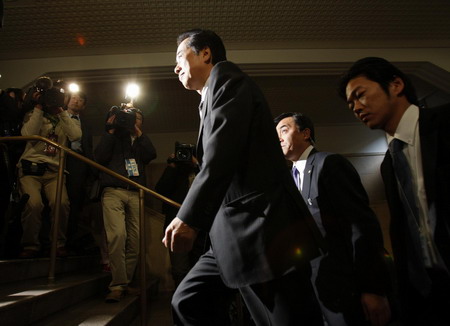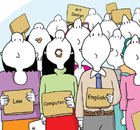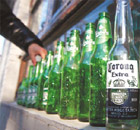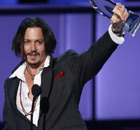Asia-Pacific
New Japanese finmin calls for weaker yen
(Agencies)
Updated: 2010-01-07 20:14
 |
Large Medium Small |
|
 Japan's new Finance Minister Naoto Kan arrives at the Finance Ministry in Tokyo January 7, 2010. [Photo/Agencies] |
Still, some economists said Kan's direct comments on Thursday reflected his lack of experience in dealing with currency policy, rather than any desire for currency intervention.
"Kan is known to make sharp comments when it comes to parliamentary debate," said Satoru Ogasawara an economist at Credit Suisse in Tokyo. "But it is uncertain whether he is good at communicating with markets and it may take time for markets to fully understand his ability."
Bond Uncertainty
Analysts said Kan's appointment brought an element of uncertainty to the Japanese government bond market which is jittery that Japan is heading for a funding crunch as public debt rises to 200 percent of GDP -- the worst among developed economies.
Kan said he hadn't thought once about fiscal austerity when the government compiled the record 92.3 trillion yen 2010/11 budget. He added that whether Japan should continue with stimulus spending would depend on how the economy fares in future.
Kan has been one of the most vocal cabinet critics of the BOJ, blasting it for taking too rosy a view of the economy and had joined other ministers in pressuring the central bank into easing its already loose monetary policy.
"We must avoid a double-dip (recession) with the help of monetary policy," he told reporters.
Japan's bulging public debt means the government's room for manoeuvre is limited if government fears of a further economic slide materialise. But the BOJ has argued there is little it can do either since its policy rate is a lowly 0.1 percent.
Still, on Dec. 1, a few days after Kan said the government and the BOJ would act together to stem yen rises, the BOJ held an emergency rate review and eased policy with a new scheme offering banks more short-term funds. The move drove the yen away from its 14-year high.
"The BOJ will clearly be prone to more political pressure, and Kan is likely to increase pressure for more action from the central bank if the yen resumes its rise and heads towards 85 yen to the dollar again," Ogasawara said.
Kan on Thursday didn't specify what the BOJ should do but added that the government must avoid a double-dip recession in the economy by closely coordinating with the central bank.










